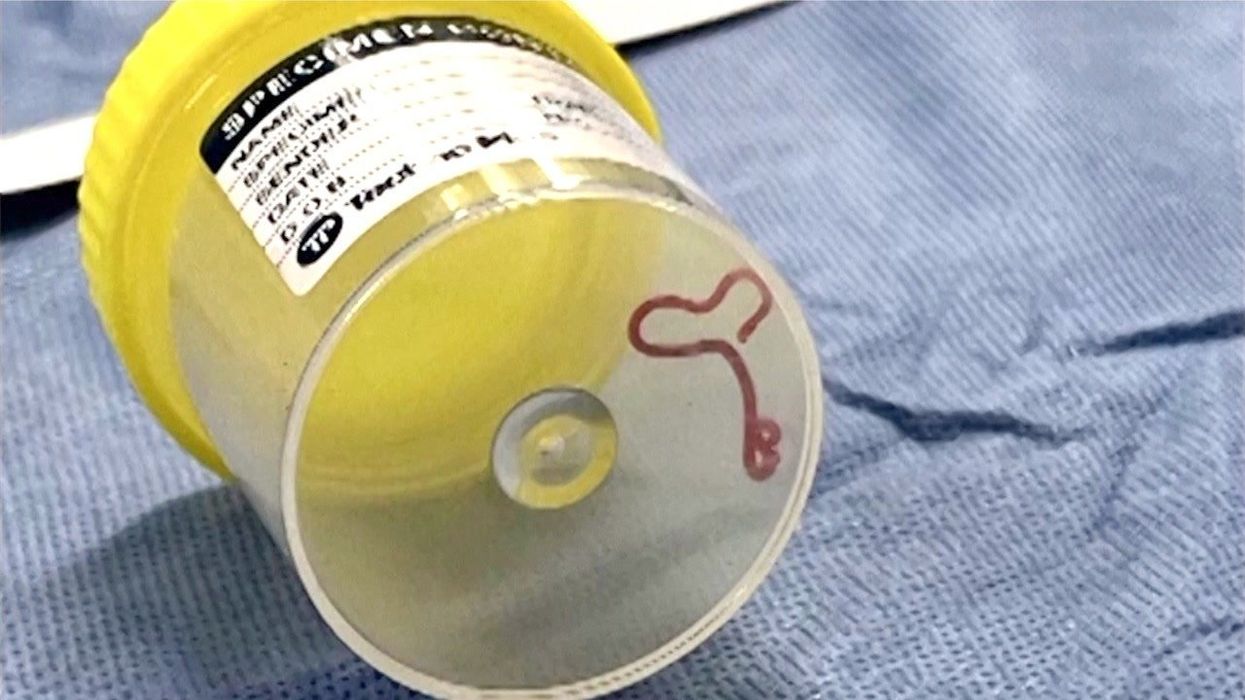Alex Daniel
Aug 29, 2023
Live Parasitic Worm Never Before Seen In Humans Was Just Surgically Removed …
After a live worm was found wriggling around in an Australian woman’s brain recently, you could be forgiven for thanking your lucky stars you don’t have a similar parasite living inside you.
But it turns out the chances are much more likely than you might think. More than 1 billion people are thought to have threadworms, a type of invertebrate also known as the pinworm, as per a 2019 study by NCBI.
Threadworms grow to around 1cm in length and are specific to human hosts. They infect the small intestine, make your bottom feel itchy and can be passed from person to person.
They are a common type of infection in the UK, particularly in children under the age of 10. Threadworms are white and look like small pieces of thread – they are usually spotted in people’s poo.
According to the NHS website, they can make people irritable and cause them to wake up at night. When things get really bad, they can cause weight loss.
The woman in Australia’s worm, by contrast, was found in her brain, and surgeons needed to get it out manually.
“Everyone [in] that operating theatre got the shock of their life when [the surgeon] took some forceps to pick up an abnormality and the abnormality turned out to be a wriggling, live 8cm light red worm," said infectious diseases doctor Sanjaya Senanayake, according to the BBC.
If you get threadworms, you won’t need to have brain surgery, fortunately.
You can buy medicine (mebendazole) for threadworms from pharmacies, according to NHS online. This is usually a chewable tablet or liquid you swallow.
The medicine kills the threadworms, but it does not kill the eggs. Eggs can live for up to 2 weeks outside the body.
There are other types of worms you can catch, however. Tapeworms, roundworms and hookworms are all relatively common parasites that you can catch from eating raw or undercooked meat. They can also be caught from inadvertently touching infected poo.
Roundworms look more like earthworms, tapeworms are long, pale yellow and flat and hookworms, somewhat horrifically, cause a red, worm-shaped rash beneath the skin.
Vincent Ho, associate professor and clinical academic gastroenterologist at Western Sydney University in Australia, said that there are four things you can do to avoid these nasty little critters.
“Avoid undercooked or raw pork. Freezing meat first may reduce risks (though home freezers may not get cold enough) and it must be cooked to a high internal temperature. Avoid pork if you are travelling in places with poor sanitation,” he said in an article for The Conversation.
“Avoid jumping or diving into warm fresh bodies of water, especially if they are known to carry Naegleria fowleri. Although only a handful of cases are reported each year, you should assume it’s present.
“Practise good hand hygiene to reduce the risk of rare and common infections. That means washing hands thoroughly and often, using soap, scrubbing for at least 20 seconds, rinsing and drying well. Clip and clean under fingernails regularly.
“To avoid soil-borne parasites, wear shoes outside, especially in rural and remote regions, wash shoes and leave them outside.”
Sign up to our free Indy100 weekly newsletter
Have your say in our news democracy. Click the upvote icon at the top of the page to help raise this article through the indy100 rankings.
Top 100
The Conversation (0)














